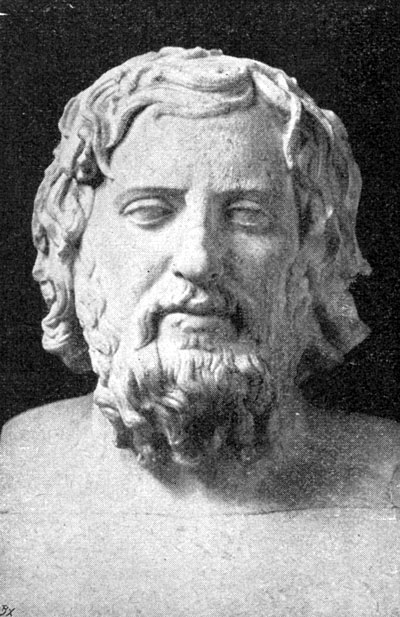 |
| Marble bust of Xenophon (from Wikimedia). |
Live by the Sword
The core of Hiero's complaints is fear: Fear of rebellion, conspiracy, assassination, and treason. When a citizen kills an enemy in battle, Hiero explains, he can publicly boast and rejoice; but when a tyrant executes a conspirator, he needs to hush down the incident and justify his actions, anxious of the resentment it might provoke (II, 15–17).All of this means that the tyrant must sleep with one eye open, suspicious of everybody:
Drink and sleep I avoid as a snare. To fear a crowd, and yet fear solitude, to fear to go unguarded, and yet fear the very men who guard you, to recoil from attendants unarmed and yet dislike to see them armed—surely that is a cruel predicament! (VI, 3–4)Consequently, the tyrant lives "in a perpetual state of war" (IV, 11).
The worst about all this, Hiero continues, is that cementing your own despotic power also means burning your bridges:
[“]For how could any despot ever find means to repay in full all whom he has robbed, or himself serve all the terms of imprisonment that he has inflicted? Or how could he forfeit a life for every man whom he has put to death? Ah, Simonides,” he cried, “if it profits any man to hang himself, know what my finding is: a despot has most to gain by it, since he alone can neither keep nor lay down his troubles with profit.” (VII, 12–13)Death, it thus seems, is the only possible exit.
"Draw on your private property"
Simonides doesn't buy this. He insists that a tyrant can come to live a life without fear, but it requires that he makes himself well liked:Take heart then, Hiero; enrich your friends, for so you will enrich yourself. Exalt the state, for so you will deck yourself with power. (XI, 13)Specifically, this means using his private capital to initiate public construction projects, to equip the citizen army, to hire local rather than foreign horse-breeders, and to generally ensure the economic prosperity of the elite citizens of his polis (XI, 2–5).
 |
| Drawing of a coin showing Hiero (from an 1875 Swedish history book) |
So the solution, it appears, is to throw around money like it's candy: "For in my opinion the sums that a great despot spends on the city are more truly necessary expenses than the money he spends on himself" (XI, 1).
Policy Recommendations
What are we to make of all of this? Surely Xenophon is not a friend of democracy, and we can't take this dialogue as arguing against the institution of tyranny as such.Perhaps, instead, the idea is to inspire rulers into the kind of "philosophical tyranny" that Plato tried to bring about in Syracuse without much success. The dialogue could be an elaborate excuse for talking some sense to tyrants who rule in a too short-sighted or egotistical fashion.
If so, then all the lamenting about the fear of rebellion and assassination in the beginning of the dialogue might be a preface intended to show the intended reader that there really isn't any happiness to be expected from excessive power-grabbing and exploitation of the citizenry.
In this way, the text would be parallel to other ancient texts claiming that true happiness comes from wisdom, moderation, and self-discipline rather than unhindered access to food, sex, and power.
No comments :
Post a Comment